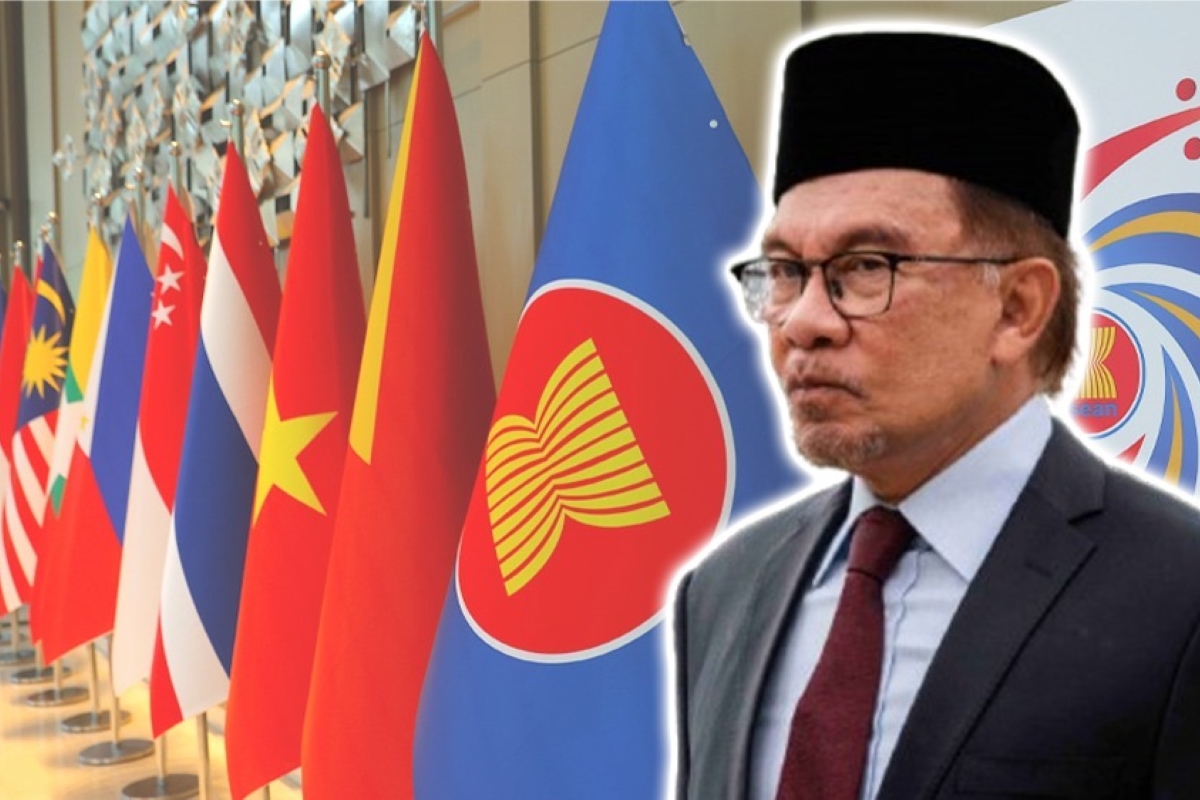Analysts don’t foresee long-term consequences from US’ demarche; emphasise the need for balanced approach to conflicting viewpoints
PRIME Minister Datuk Seri Anwar Ibrahim has maintained Malaysia’s strong stance on the Gaza issue, despite considerable pressure from the US and other Western counterparts.
On Nov 17, Anwar voiced out about the bloodbath that is happening in the Gaza Strip amid Israel’s relentless air and ground attack during the Asia-Pacific Economic Cooperation (APEC) Economic Leaders’ Informal Dialogue and Working Lunch in the presence of US President Joe Biden and the rest of the leaders from member economies.
“What’s happening in Gaza is clearly an abandonment of moral responsibility which allows massive destruction to happen and resulted in climate calamity,” he said as the other leaders sat in silence.
The attack has killed more than 14,854 Palestinians, including over 10,000 women and children, while over 39,000 have been injured.
Last month, Anwar said that Washington had exerted pressure on Malaysia, with the US State Department calling up the country’s ambassador in Washington over the matter.
His office also confirmed with the press that Putrajaya had received a demarche notice from the US on the Palestine-Israel conflict on Oct 13, while the US Deputy Chief of Mission to Malaysia Chargé d’Affaires Manu Bhalla had called on a deputy secretary general of Malaysia’s Ministry of Foreign Affairs on Oct 30.
Anwar previously alleged that he was “threatened” by several European lawmakers because of his vocal support for Palestinians and refusal to condemn Hamas, who are blamed for killing over a thousand Israelis in a daring Oct 7 assault that caught Israeli forces off guard.
What is Demarche?
In the context of international affairs, the term “demarche” is commonly applied. It describes a formal diplomatic representation made by one sovereign government to another government or esteemed international organisation.
This diplomatic act provides an essential channel for discussion between countries, facilitating the sharing of perspectives, issues and potential solutions on subjects of paramount importance.
The primary purpose behind the utilisation of this particular method of communication is to efficiently and proficiently transmit the official stance, perspectives or desires of the sending government with regards to a specific subject matter.
Demarches are typically undertaken by diplomatic authorities with the objective of persuading, informing or gathering information from a foreign government.
Political analyst Rizal Hamdan emphasises that issuing a demarche is a common practice in multilateral diplomacy. It serves as a formal representation of a government’s official position.
“In multilateral diplomacy, issuing a demarche is a normal practice as it is a form of formal diplomatic representation of one government’s official position.
“In another way, it is a formal diplomatic protest from one country to another regarding a certain issue or position.
“For example, in 2022, Pakistan sent a demarche to the US as a form of protest, alleging interference in Pakistani politics. Both countries’ relations are still going on today.
“In my opinion, in Malaysia’s context, we should acknowledge Washington’s protest, but it is unlikely to severely impact bilateral relations between Malaysia and the US. After all, Washington has always been an ally and one of our earliest diplomatic missions since 1957.
“Hence, demarche is just a way for Washington to register its diplomatic protest on Malaysia’s stance and position on international issues,” said Rizal.
Meanwhile, Political & Security Analyst Centre for Media & Information Warfare Studies Universiti Teknologi MARA (UiTM) Dr Noor Nirwandy Mat Noordin emphasised the crucial need to thoroughly analyse the intricate international elements intertwined within the complex situation of the ongoing conflict between Israel and its counterparts.
Noor Nirwandy believes that in today’s interconnected world, it matters most for countries to approach international and foreign policy with openness and respect.
It is duly understood that it is important for any country to have its own perspectives, especially on complex issues that significantly impact the nation.
Malaysia, as a predominantly Muslim country, firmly asserts its rightful entitlement to be duly recognised for its unwavering stance on the Israel and Palestine conflict.
“It is imperative that our position, which steadfastly refrains from labelling Hamas as a terrorist organisation, is accorded the utmost respect it deserves.
“We have our own valid reasons for disagreeing with the US and other countries which view Hamas as a terrorist organisation,” said Noor Nirwandy.
US Would Not Want to Lose Malaysia
When considering the potential impact of the conflict on trade agreements, alliances or cooperation on international affairs sub-sequent to the issuance of notices, Rizal believed that there is unlikely to be any significant severance of ties between Malaysia and the US.
“The US is currently the third largest trading country with Malaysia after China and Singapore. 7.2% of RM882.24 billion worth of Malaysia’s total imports and 11.3% of RM1.06 trillion of Malaysia’s exports from January to September 2023 were from the US.
“So, Malaysia is a strategic country for the US to implement its Indo-Pacific strategy. Malaysia is also an important member of the Asean and subsequently the Organisation of Islamic Cooperation (OIC).
“Disengaging with Malaysia will mean more losses for the US.
“I think Washington cannot let this happen or otherwise, Beijing will step in to fill the vacuum. This is a kind of strategic mistake that Washington could not afford in its geopolitical rivalry with China,” said Rizal.
At the same time, Noor Nirwandy stressed the significance of preserving a state of simultaneous existence and coexistence. This involves maintaining a delicate balance to prevent any intervention or disruption, particularly when dealing with conflicting viewpoints regarding conflicts and their implications on trade agreements and inter-connected alliance relationships.
“It is essential to adopt a respectful stance, recognising that demarche notices from other countries, as seen in the case of the US, should not adversely impact trade agreements and alliances. We believe in the continuity of multilateral relationships among all nations.
“The challenges within democracy should not be downplayed due to differing perspectives on specific conflicts. The prevailing global sentiment emphasises impartiality in addressing conflicts, and it is crucial to recognise the rights of all nations, including the Palestinian people and Palestine, at the earliest opportunity.
“This conflict must be resolved promptly, especially when there are clear instances of human rights violations and discrimination occurring at the most severe level of human rights violations,” he added.
Diplomatic Discord and Future Relations
In expressing his views on the potential long-term consequences of the demarche notice, Rizal confidently states that he does not anticipate any significant enduring impacts resulting from the demarche.
“Our highly skilled and exceptionally capable foreign officers at the esteemed Wisma Putra are extensively trained and equipped with the necessary expertise to handle the issue in a thoroughly professional manner, strictly adhering to the principles and guidelines set forth by the international law.
“I don’t see any long-term consequences with regard to the demarche,” added Rizal.
Noor Nirwandy, in his statement, agreed that there should be no long-term effects until there are recurring components of interference that have the potential to significantly impact and shape our future perspectives in a profound manner.
“There should not be long-term consequences unless there are repeated elements of intervention on how we shall see things.
“The protest and genuine efforts to end the conflict should not be perceived as leading to any long-term consequences. It’s crucial to recognise that the impact of these actions goes beyond the immediate moment and can have lasting effects on the trajectory of societal change and conflict resolution.”
Noor Nirwandy added that all of the countries around the world have unequivocally and resolutely expressed their collective voice and stance on the matter at hand, and there are numerous additional countries that have actively and willingly joined the ranks of those participating in the condemnation of the ongoing violation of human rights.
“Many countries have expressed their disagreement, with the majority being middle-power nations. Additionally, the people of the superpower country have also voiced their opinions on the matter.
“There should not be any significant concerns in the long run, as this primarily pertains to human-related matters.
“The focus should be on addressing human rights issues in a more optimistic manner, with the ultimate goal of creating a more favourable global environment for all individuals to reside in,” he concluded.
credit: https://themalaysianreserve.com/2023/11/28/why-malaysia-us-relation-still-strong-despite-divergent-stances-on-gaza/















